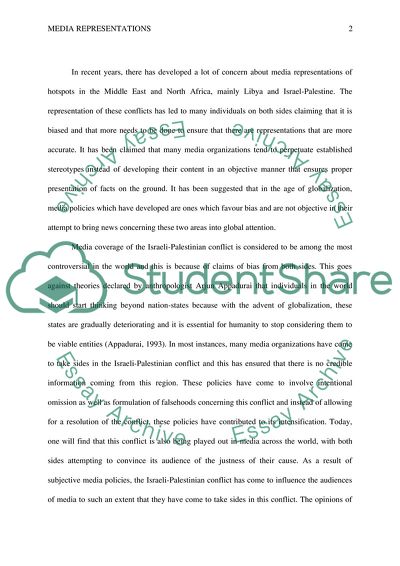Cite this document
(“Media representations of issues relating to Israel-Palestine and Libya Essay”, n.d.)
Media representations of issues relating to Israel-Palestine and Libya Essay. Retrieved from https://studentshare.org/journalism-communication/1660115-media-representations-of-issues-relating-to-israel-palestine-and-libya-in-the-age-of-globalization-and-how-they-reflectimpact-upon-media-policies
Media representations of issues relating to Israel-Palestine and Libya Essay. Retrieved from https://studentshare.org/journalism-communication/1660115-media-representations-of-issues-relating-to-israel-palestine-and-libya-in-the-age-of-globalization-and-how-they-reflectimpact-upon-media-policies
(Media Representations of Issues Relating to Israel-Palestine and Libya Essay)
Media Representations of Issues Relating to Israel-Palestine and Libya Essay. https://studentshare.org/journalism-communication/1660115-media-representations-of-issues-relating-to-israel-palestine-and-libya-in-the-age-of-globalization-and-how-they-reflectimpact-upon-media-policies.
Media Representations of Issues Relating to Israel-Palestine and Libya Essay. https://studentshare.org/journalism-communication/1660115-media-representations-of-issues-relating-to-israel-palestine-and-libya-in-the-age-of-globalization-and-how-they-reflectimpact-upon-media-policies.
“Media Representations of Issues Relating to Israel-Palestine and Libya Essay”, n.d. https://studentshare.org/journalism-communication/1660115-media-representations-of-issues-relating-to-israel-palestine-and-libya-in-the-age-of-globalization-and-how-they-reflectimpact-upon-media-policies.


